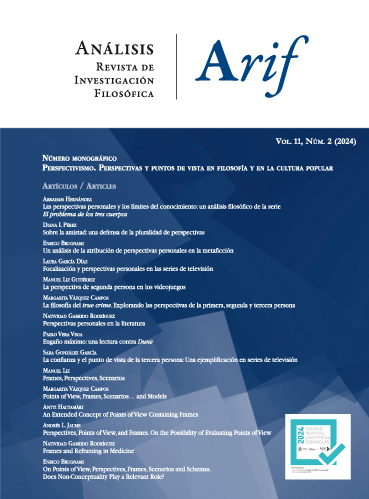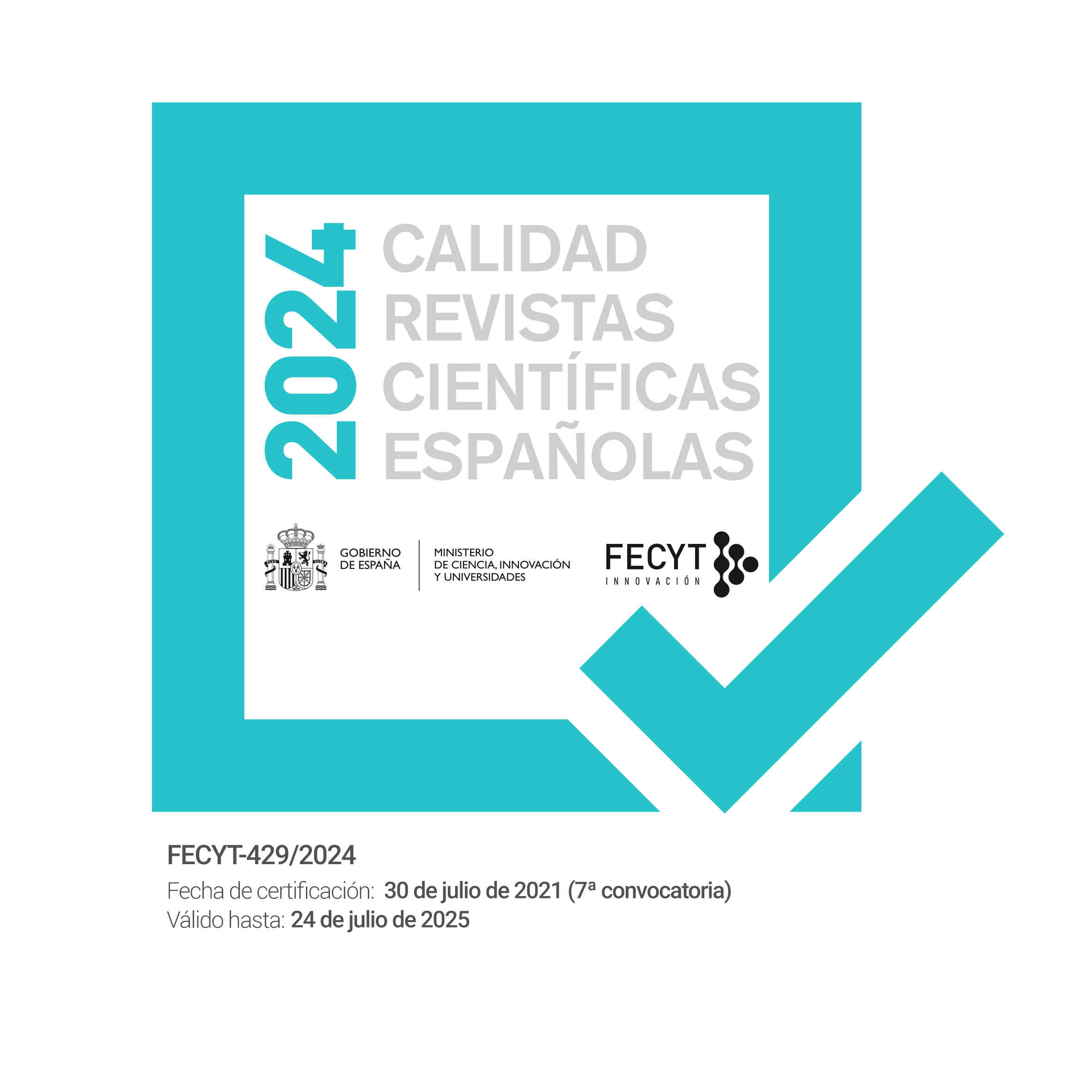PERSONAL PERSPECTIVES AND THE LIMITS OF KNOWLEDGE: A PHILOSOPHICAL ANALYSIS OF THE SERIES THE THREE-BODY PROBLEM
DOI:
https://doi.org/10.26754/ojs_arif/arif.2024211328Abstract
This work offers a philosophical interpretation of the TV series The three-body problem (Benioff, et al., 2024-) from a perspectivist approach. The thesis defended here is that the series' format, articulated through an entanglement of narrative perspectives, enables reflection on how personal perspectives and frames of reference shape the understanding of events, challenging notions such as truth and objectivity. To support this thesis, three key moments from the series will be analyzed: 1) the first contact with the trisolarans, 2) the use of the virtual reality video game as a bridge between civilizations, and 3) the trisolaran invasion. This analysis shows how the narrative framing conditions the viewer's interpretations while simultaneously encouraging critical reflection from a metaperspective on the validity of fundamental knowledge-related notions, such as truth and objectivity. Finally, the didactic implications of second-person interaction and the critical potential of third-person narration are explored, highlighting their ability to reveal the inherent biases in personal interpretations of events.
Display downloads
Downloads
Published
Issue
Section
License
Copyright (c) 2024 Abraham Hernández

This work is licensed under a Creative Commons Attribution-NonCommercial-NoDerivatives 4.0 International License.
Los autores que publican en esta revista están de acuerdo con los siguientes términos: los autores conservan los derechos de autor y garantizan a la revista el derecho de ser la primera publicación del trabajo al igual que licenciado bajo una Creative Commons Reconocimiento-No Comercial-Sin Obra Derivada 4.0 (CC BY-NC-ND) que permite a otros compartir el trabajo con un reconocimiento de la autoría del trabajo y la publicación inicial en esta revista. Los autores pueden establecer por separado acuerdos adicionales para la distribución no exclusiva de la versión de la obra publicada en la revista (por ejemplo, situarlo en un repositorio institucional o publicarlo en un libro), con un reconocimiento de su publicación inicial en esta revista.






